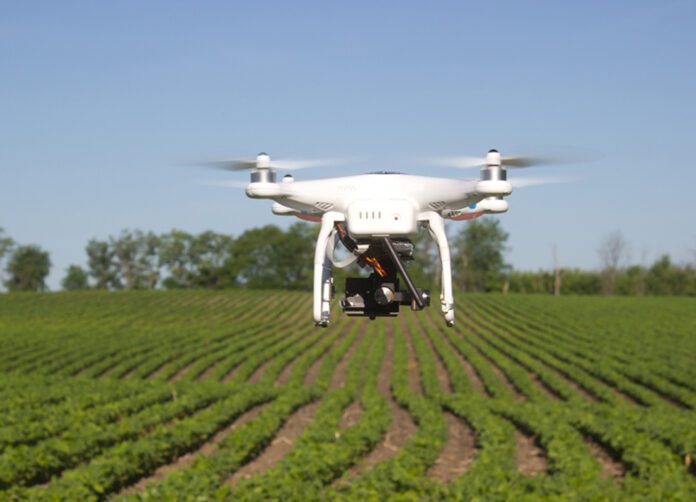The foundation of human civilisation has always been agriculture, an old practise that is constantly changing. From the rudimentary tools of yesteryears to the cutting-edge technology we deploy today, farming has witnessed numerous revolutions. Among the most recent and impactful advancements in this realm is the rise of Agriculture drone. And integral to these high-flying machines is a vital component that guarantees their efficiency: the lithium-ion battery.
The Dawn of Drones in Agriculture
Technology integration has grown crucial as agriculture tries to fulfil the demands of a growing global population. Drone usage is one of the most revolutionary technologies to have recently graced the agriculture industry. Here is further information on the important functions that drones play in contemporary agriculture:
- Enhanced Monitoring: Drones allow farmers to get a holistic view of their fields. This aerial perspective is crucial for identifying variations in the field, which might not be visible from the ground level. With the ability to relay real-time footage, drones provide immediate insights, enabling farmers to take timely actions. Equipped with advanced sensors, drones can regularly monitor crop health, helping farmers identify potential issues before they escalate.
- Precision Agriculture: Drones can accurately pinpoint areas in a field that may need specific attention, be it for water, nutrients, or pest control. This precision ensures that resources are used optimally, reducing waste. Some advanced agricultural drones can not only detect areas that need attention but also carry out tasks such as releasing beneficial insects in areas with pest infestations or applying fertilizers in nutrient-deficient zones. Using multispectral sensors, drones can analyze soil health and fertility, guiding farmers on crop rotation strategies and optimal planting techniques.
- Data Acquisition: Drones can collect vast amounts of data during their flights, ranging from soil moisture levels to sunlight exposure. This data is invaluable for making informed farming decisions. The data collected by drones can be integrated into digital farm management systems. Allowing farmers to get a comprehensive view of their operations and make data-driven decisions. Over time, as data accumulates, drones enable farmers to understand trends. Such as declining soil fertility in certain areas or recurring pest infestations, helping them take proactive measures.
- Cost and Time Efficiency: With drones taking over monitoring tasks, there’s a significant reduction in the manpower needed for field scouting, translating to cost savings. What could take hours or even days – like surveying a large field on foot – can be accomplished in a fraction of the time with drones. With precise data on which areas need attention. Farmers can allocate resources more effectively, further cutting down costs and reducing wastage.
Yet, the efficacy of these drones largely rests on their power source. The importance of lithium-ion battery technology may be seen in this.
Why the Future Is in Lithium-ion Batteries
Drones need a dependable and effective power supply in order to carry out their job without error. Several significant benefits have led to lithium-ion batteries being the leaders in this field:
- High Energy Density: Lithium-ion batteries offer a high energy density, meaning they can store more energy compared to their size and weight. This attribute is especially crucial for portable devices that require compact batteries but long-lasting power.
- Long Lifespan: These batteries are known for their longevity. With the ability to endure numerous charge and discharge cycles, agriculture drone battery outlast many other battery types. Over time, while they might experience some capacity loss, their extended operational lifespan makes them a cost-effective choice.
- Rapid Charge Capability: Lithium-ion batteries can be recharged swiftly. This rapid charging capability ensures minimal downtime, especially vital for applications like electric vehicles where quick charging is a significant advantage.
- Low Self-Discharge Rate: One of the setbacks with many batteries is the self-discharge phenomenon, where batteries lose their charge when not in use. Lithium-ion batteries have a considerably low self-discharge rate, ensuring that they retain their charge for a longer duration even when idle.
- Lightweight and Compact: For their power capacity, lithium-ion batteries are relatively lightweight and compact. This feature is particularly beneficial for mobile devices and electric vehicles, where the weight can influence device portability and vehicle efficiency.
- Broad Temperature Operating Range: While extremely high or low temperatures can affect battery performance, lithium-ion batteries have a reasonably wide operating temperature range. This makes them suitable for use in varying climates and conditions.
Specific Battery Solutions for Diverse Drone Applications
Drones, while universally versatile, are tailore for specific purposes. Agriculture drones focus on enhancing farming operations, while other drones might serve delivery, surveillance, or surveying objectives. Recognizing these varied requirements, it’s essential to match drones with battery chemistries best suited for their purpose.
For instance, while lithium-ion batteries stand out as the ideal choice for agriculture and delivery drones due to their consistent energy delivery. Other battery types, like solid-state, might be better suited for drones employed in surveillance and land surveys. By matching the right battery type with its intended drone application. One ensures optimal performance, extended drone lifespan, and heightened safety.
Governmental Support and Advancements in the Drone Sphere
The rapid ascent of drone technology has garnered attention and support from governmental bodies across the globe. Recognizing the potential benefits drones bring to the agricultural sector and beyon, various initiatives have been rolle out:
- Subsidies and Support: In many regions, farmers receive subsidies and financial assistance to integrate drones into their farming practices, making the adoption of this technology more accessible.
- Research and Development: Governments and independent institutions alike are investing in R&D to further drone technology, from enhancing their autonomous flight capabilities to refining their data collection methodologies.
- News and Breakthroughs: The drone industry is vibrant, with constant innovations and breakthroughs. Be it in the realm of battery technology, autonomous controls, or imaging capabilities. There’s always something new on the horizon, ensuring the agricultural drone sector remains at the pinnacle of technological advancements.
Wrapping Up
In the dynamic realm of agriculture, drones powered by advanced lithium-ion technology are carving out a niche of excellence. As these flying marvels continue to redefine farming practices, the emphasis on equipping them with the best in drone battery technology remains paramount. As the world moves forward, the harmonious fusion of drones and lithium-ion batteries promises to shape the future of agriculture, making it more efficient, sustainable, and productive.

